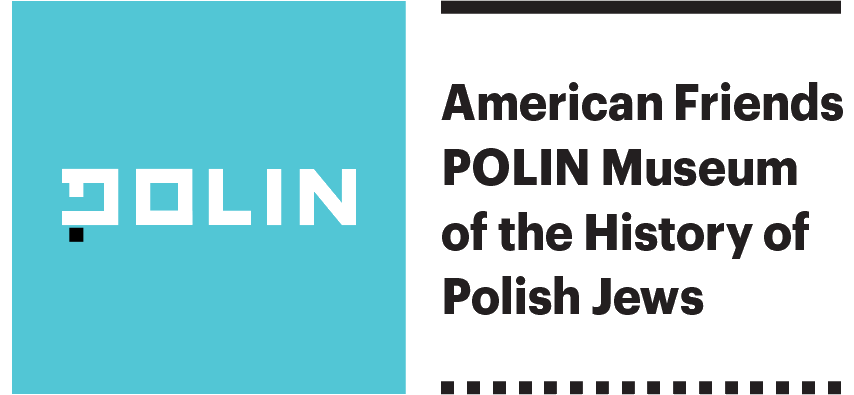In Memoriam Sigmund Rolat
It is with great sorrow and deep appreciation that the Board of the American Friends of POLIN Museum of the History of Polish Jews mourn the loss of Sigmund Rolat, one of its founders and co-chairs. Rolat was one of the earliest and most enduring advocates for the creation of POLIN Museum and one of its most generous funders, helping turn a dream into a reality over several decades. POLIN Museum, located in Warsaw, Poland on the very spot where the Warsaw Ghetto Uprising was launched in 1943, recounts the thousand-year history of Polish Jews. POLIN Museum documents this history’s full complexity, ranging from the rich creativity of Polish Jewish life to the darkest years of persecution and genocide. Rolat, a Distinguished Benefactor of POLIN Museum, spoke frequently about “our museum” to anyone who would listen, including members of the White House staff and members of the U.S. Congress, often rallying others to support its mission.
Born in Częstochowa, Poland on July 1, 1930, Rolat was nine when Nazi Germany invaded Poland, and his life was forever altered by World War II and the Holocaust. Along with members of his family, Rolat was imprisoned in the Częstochowa ghetto. Remarkably, his Christian nanny joined his family in the ghetto, where she cared for Rolat and eventually perished, along with his mother and older brother. Rolat spoke often of his nanny, always conveying the depth of his gratitude to her and underscoring the humanity of her actions. Tragically, after the Częstochowa ghetto was liquidated, his father was sent to Treblinka, where he was murdered. After the Częstochowa ghetto was liquidated, Rolat was forced to work in the HASAG Pelcery labor camp from which he was liberated when the war drew to an end.
In 1948 at age 18, Rolat immigrated to the United States, where he studied law and founded his own transport company. Determined to build a new life in his new land, Rolat achieved tremendous financial success, which allowed him to express his generosity of spirit by supporting many causes close to his heart as well as the causes of his friends and family. Often, those close to him did not need to prompt him to donate, as he proactively sought to give in as meaningful a way as possible.
Rolat never became embittered by the suffering he experienced and witnessed. He was optimistic and fiercely proud to be Jewish and he never ceased believing in Poland, with which he felt a deep positive connection. Above all, he devoted himself to supporting democratic and Jewish life in Poland after the fall of communism. POLIN Museum was an institution that spoke to all of his values and commitments. In the long effort to build, open, and protect POLIN Museum, Rolat deployed his intelligence and flawless native Polish as a skillful and tactful negotiator.
Despite terrible years in the Częstochowa ghetto and the positive pull of his new life in the United States, Rolat maintained deep connections with his hometown and acted as President of the World Association of Jews of Częstochowa and Their Descendants. He was a patron of the Częstochowa Philharmonic and was pleased to be named an Honorary Citizen of his hometown.
He generously supported numerous projects and organizations in Poland and abroad, including Singer’s Warsaw Festival and the Kraków Jewish Culture Festival.
Above all, POLIN Museum was his cause célèbre. Speaking of POLIN Museum, he once said, "I think that any person who visits our museum, if they are Jewish … will be proud, and if they are not Jewish, they will walk out knowing all there is to know about Jewish history in Poland."
Rolat was deeply committed to fostering a close and productive relationship between Poland and the United States and the Polish and American peoples, inspiring his enthusiastic support for the Kosciuszko Foundation, which facilitates cultural exchanges between the two countries.In recognition of his efforts to foster Polish-Jewish dialogue, he was awarded the Commander’s Cross with Star of the Order of Merit of the Republic of Poland by President Bronisław Komorowski.
For Rolat, life was a series of opportunities. Unable to participate fully in Jewish ritual life during the war, he was forced to forego a bar mitzvah. However, never one to allow others to shape his life, he chose to celebrate his own bar mitzvah many decades later when his grandson was bar mitzvah. Through this act, he built a bond across generations and chapters of history, just as he did by building his beloved Museum. In doing so, he honored the words of Jerzyk, his older brother, who beseeched him at age 12 to never forget what he witnessed during the Holocaust. Through a life of intention and generosity, Rolat honored his brother’s plea, and, in doing so, enriched the lives of countless others.
In addition to his significant accomplishments in business and philanthropy, Rolat was a man who loved beauty as expressed in both music and art. He travelled the world to attend operas, an art form that especially touched him. Marrying his love of music with his love for the museum, he made possible a concert of Joshua Bell performing on the Huberman Stradivarius, in support of POLIN Museum.
We share our deep condolences with his family. We will miss him beyond what our words can express. His life and memory are a blessing.

